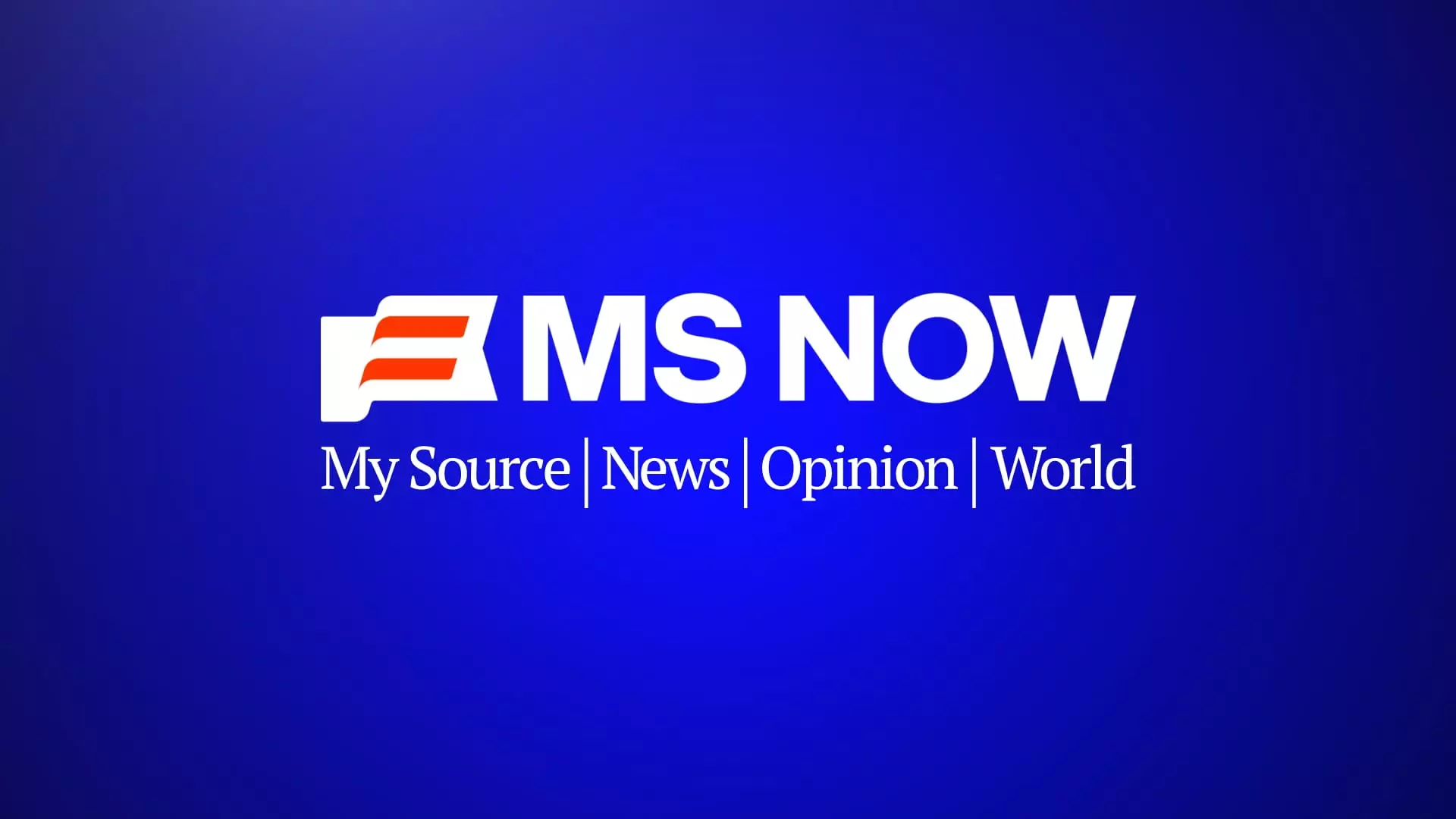In a landscape saturated with partisan divides, MSNBC’s impending rebranding feels more like an act of desperate survival than a strategic evolution. The network’s decision to shed its iconic peacock logo and adopt a nebulous name—My Source News Opinion World, or MS Now—raises profound questions about the authenticity and integrity of contemporary journalism. It seems as though MSNBC is attempting to reinvent itself, not as a reflection of journalistic principles, but as a blank slate optimized for manipulation and ideological fluidity. Such a move underscores the growing trend of corporate interests prioritizing market positioning over substantive news coverage, essentially reducing news organizations to commodities within a broader political marketing machine.
While the network insists that its core values will remain unchanged, the elimination of the peacock emblem—long a symbol of reliability and tradition—signifies a deeper crisis. It reveals an organization caught at a crossroads, desperately attempting to rebrand amidst rising skepticism about media bias. The move indicates a lack of confidence in the network’s previous identity, which sought to be a counterbalance in a polarized media environment. But by attempting to distance itself from its roots, MSNBC risks alienating viewers who valued its legacy of in-depth analysis, even as others might see it as an admission of drift from journalistic independence.
Corporate Splits and the Myth of Independent Journalism
The decision to spin MSNBC off as a separate entity from NBCUniversal highlights an inconvenient truth: the political news landscape is increasingly dictated less by journalistic integrity and more by corporate strategizing. Versant’s plan to establish an independent newsroom and recruit journalists from prominent outlets appears, on the surface, to be a move toward objectivity and diversification. However, this separation is as much about marketing and branding tactics as it is about actual editorial independence.
The creation of a ‘new’ MSNBC doesn’t inherently guarantee better or more balanced journalism; it superficially distances the network from its parent corporate interests, but at what cost? The core problem remains unresolved: how can a network truly serve the public interest while operating within a system driven by corporate profits and political allegiances? The new name and logo are mere cosmetic changes that attempt to mask the fact that corporate influence still wears the same face, regardless of internal restructuring.
This new phase underscores the fundamental dilemma in liberal-leaning media: maintaining a centrist approach that neither alienates viewers on the left nor estranges those on the right is increasingly difficult in a polarized era. MSNBC’s efforts to build a separate identity reflect an internal recognition that credibility hinges on perceived independence. Yet, unless there is genuine transparency and accountability embedded into its operational ethos, these branded changes are ultimately superficial, serving more as cancellation of history than a commitment to journalistic integrity.
The Illusion of Modernization and Market Competition
MSNBC’s forthcoming rebranding appears to be motivated by a desire to stay competitive amid fierce market pressures and shifting viewer preferences. The new campaign—expected to be “unlike anything we have done in recent memory”—aims to reinvent the network’s appeal entirely. But superficial modernization rarely addresses the deeper issues of bias, factual integrity, and the network’s role in shaping political discourse.
In the broader context, this move presents a troubling commentary on how corporate interests have infiltrated even progressive-leaning outlets. The assumption that a new logo and a name change will revitalize trust is its own flimsy illusion. As media consumers, modern audiences are increasingly skeptical, capable of sniffing out distortions and ill intentions behind corporate redesigns. The danger lies in the normalization of branding as a substitute for meaningful change.
This is especially critical given MSNBC’s current position as the second most-watched cable news network. Its large audience suggests a significant responsibility—not to pander to partisan narratives but to uphold the standards of verifiable, fair reporting. Falling into the trap of mere rebranding compromises that responsibility, ultimately reducing the network to just another player in the marketplace of ideology. In striving to stand apart, MSNBC risks losing the trust of viewers who seek honesty and fairness, realizing that behind the gloss and marketing buzz, little has truly shifted.
The massive rebranding effort reveals more about the media industry’s fragility and desire to mask its shortcomings than it does about authentic progress towards journalistic independence. Instead of fixing the systemic issues of bias, corporate influence, and accountability, MSNBC’s name change and logo overhaul appear as opportunistic gestures designed to refresh an aging product. This superficial attempt at differentiation undermines the very principles that should define credible journalism: transparency, integrity, and independence. If the media landscape is to evolve into a more honest space, organizations like MSNBC need to look beyond branding gimmicks and confront the deeply rooted economic and political structures that threaten to erode trust altogether.

